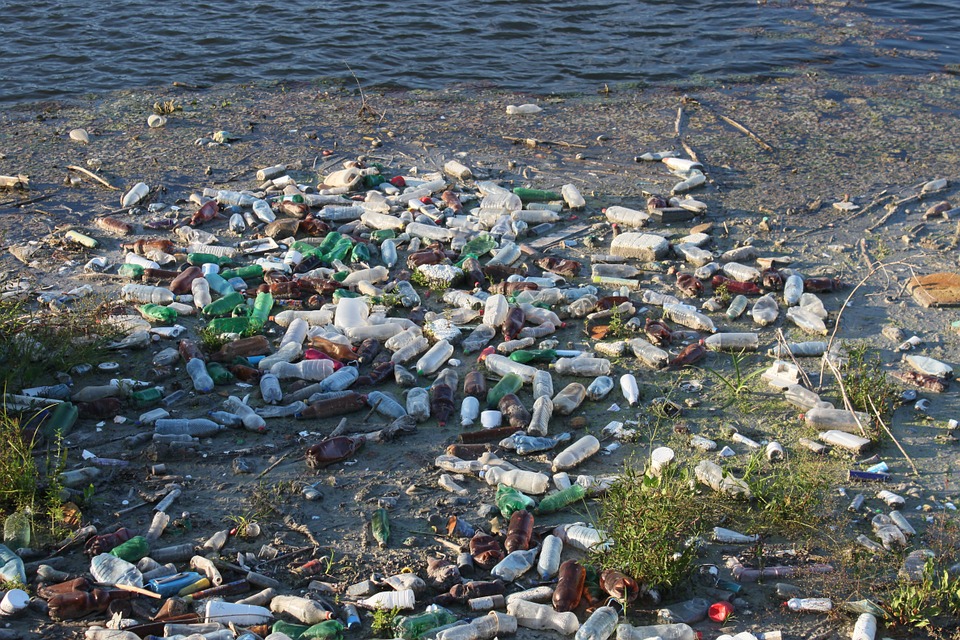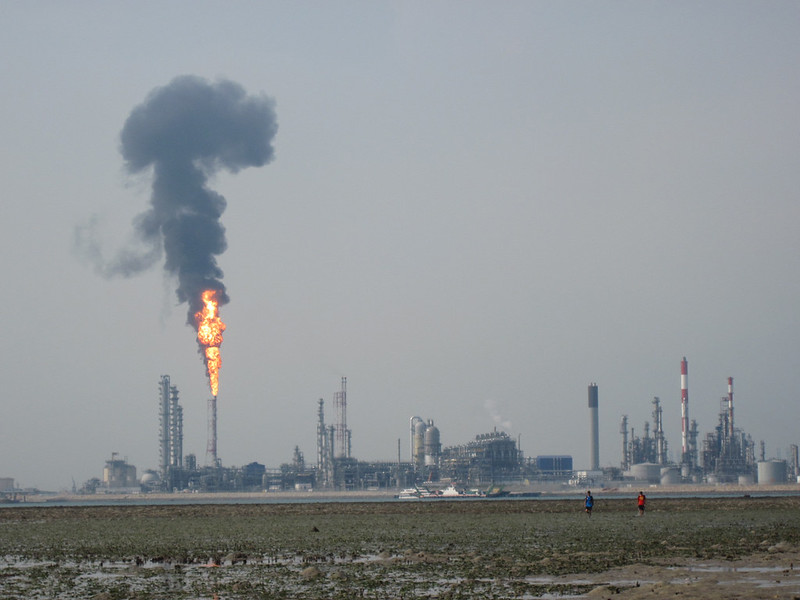by guest contributor Pietro Mascetti, 6 October, 2019
Waste, while it has been a product going back to the earliest form of human civilisation, both the quantity and quality of waste today is directly the product of capitalist production and consequently, subject to the demands for profit by capitalist industries. Waste is defined as any substance that is a by-product of the production process that is not desired. Waste can be classified as solid, liquid or gas and although their physical properties might be different, they each leave a stain on our natural and human resources that need management.
The World Bank published a report on waste in 2018. It estimated that approximately 2 billion metric tonnes of solid waste are produced annually. This figure is expected to grow to 3.5 billion tonnes by 2050. Only 13.5% of solid waste is recycled and about 5% composted.
Solid wastes include a wide variety of materials but, as you might imagine, one of the largest components is plastic. Plastic is a by-product of the oil industry and is a major problem, given that it is photodegradable and a very hardy material. Photodegradable means that it breaks up into tiny pieces when exposed to sunlight but does not decompose in the short term. A plastic bag may break up into thousands of tiny fragments without decomposing.

Gaseous wastes include the gases from industrial production and vehicle emissions. The main waste product from gaseous emissions is carbon dioxide. It makes up about 5% of total global waste product but it has a significant impact on our weather and climate patterns. Increased carbon emissions into our atmosphere are a significant contributor to global warming and climate change.
Liquid waste is mainly in the form of sewerage or effluent from urban and farming environments. Agriculture uses chemicals to increase the productivity of farm output and when those chemicals become soluble and contaminate ground and surface water, they can flow through channels and river systems, compromising the quality of land and aquatic environments.
If we take the fossil fuel industry as a key polluting and waste sector, we can start to examine the relationship between waste and profits which will provide us with an understanding of how to go about addressing the problem. Remember that the fossil fuel industry creates the by-product of plastic that is so harmful to the environment. Fossil fuels include oil, gas and coal. In 2014, fossil fuel companies operating in the United States and Canada, generated $257 billion in profit. Yes, in just one year, 2014, to just one section of the global economy, profits accumulated through the extraction, transportation, refining and distributing of oil, gas and coal provided great amounts of profit for shareholders. That $257 billion in profit would place that industry among the top 40 of economies in the world, equivalent in size to the Chilean economy.

To understand why plastics are so widespread, you have to understand the relationship between fossil fuel companies and political power. Take oil companies for example. There is a very strong relationship between big oil and the American Congress and White House. Much of American imperialism’s foreign policy is aimed at dominating oil energy regions of the world. The invasion of Iraq, attempted coup in Venezuela, military contracts with Saudi Arabia are aimed at securing American oil companies’ domination of energy reserves around the globe. As such, oil companies are central to waste contamination through firstly the act of war and destruction, rendering entire cities and countries to waste, and secondly through the proliferation of plastic in so many products, that finally end up in our oceans.

a wholesale destruction of the city by U.S. troops. Photo: Patrick Baz/Agence France-Presse
Once the profits are made, there is very little consideration for the waste or where it ends up. It is more profitable to create waste through extraction, production etc. than through its clean up or responsible management. That is why only about 13% of global waste is recycled and much of it ends up in landfill or even worse, in the Pacific Ocean.
Carbon dioxide is produced when fossil fuels are burned. Those gaseous waste products are directly linked to global warming and climate change. And so we arrive at a nexus, a connection involving many different aspects. The fossil fuel industry, waste products, imperialist war and climate change, all revolving around the pursuit of profit. You could draw a mind or concept map to illustrate the links and connections.
Can you see the solution here? Is it possible to clean the world up, arrest climate change, stop imperialist war in a world in which the pursuit of profits by large corporations is firmly in the seat of competing capitalist powers? Moreover, is there any incentive to clean up the massive plastic mess in the Pacific Ocean when American imperialism is dedicating so much more to war and destruction than healthy environmental programs?
There are so many issues that the management of waste brings up but consider also, the condition of the workers and communities who live and work in waste industries. A recent story in Australia identified the very poor working conditions of Tamil refugees in the waste management sector of Victoria. Companies demanding profits have resorted to hiring among the most oppressed sections of workers who have described working 60 hour weeks for minimal pay in dangerous working conditions. There have also been several polluting fires at recycling plants in Victoria in working class suburbs that have exposed thousands of residents and emergency service workers to toxic pollution.
Consider also the many millions of people around the world who literally live in waste dump piles, trying to extract what little can be obtained to earn a living or find something which can sustain life. Often, these environments are contaminated with diseases that afflict the young and contribute to low life expediencies.

There is so much that can be written and much more that needs to be done for which capitalism is unable to. Planning, removal of the profit motive for economic activity, engaging the collective minds of all humanity, overthrow of private property and nation states will create a foundation for resolving the waste management and allied issues facing the world.
Pietro Mascetti is a Sydney based Marxist and supporter of the Free Assange campaign. He has contributed the above article as a guest contributor to classconscious.org
